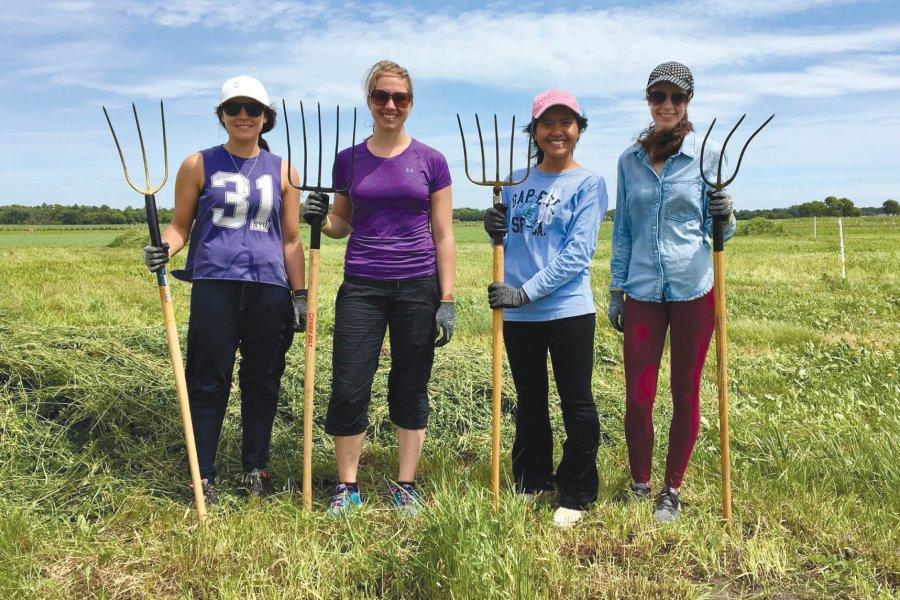Year 1 - 37.5 credit hours
Course requirements:
CHEM 1100, CHEM 1122, COMP 1012, ENG 1430, ENG 1440, ENG 1450, ENG 1460, MATH 1210, MATH 1510, MATH 1710, PHIL 1290*, PHYS 1050, plus written English requirement.
*Recommended Complementary Studies elective
Students need 8 of the 13 (excluding CHEM 1122) courses to apply to engineering departments.
To do this year:
- Consider meeting with an academic advisor in the Price Faculty of Engineering to help you plan your program.
- Apply online for entry into the Biosystems Engineering degree program by March 1.
- For academic support, visit theMath Help Centre or contact the Academic Learning Centre to register for a supplemental instruction session.
Year 2 - 77.5 credit hours
Course requirements:
BIOE 2480, BIOE 2590, BIOE 2790, BIOE 2800, BIOE 2900, CHEM 1110, CHEM 1126, MATH 2130, MATH 2132, MECH 2150, ENG 2022, STAT 2220 plus one Indigenous Knowledge course*.
*Students are required to take at least one of the courses from the list of Indigenous Knowledge courses.
To do this year:
- Know the requirements of your department, review program models. Credit hours will vary depending on course selection. Some courses may not be offered every year, talk with an advisor for more information.
- Consider applying to the faculty’s Co-op/IIP program.
- Consider specializing your education in Biomedical, Bioresources or Environmental engineering.
- Consider an approved minor to add to your studies.
Year 3 - 117.5 credit hours
Course requirements:
BIOE 3110, BIOE 3270, BIOE 3320, BIOE 3400, BIOE 3590, BIOE 3900, MBIO 1220, MECH 3482, one technical elective, plus two Science electives.
To do this year:
- Credit hours will vary depending on course selection. Consider meeting with a department advisor to review your program.
- Meet with your co-op advisor, if applicable.
- Discuss your program with your professors and industry professionals for advice regarding the best choice of electives for your needs.
Year 4 - 150-153 credit hours
Course requirements:
BIOE 4240, BIOE 4900, BIOE 4950, ENG 3000, one course in Technology and Society (ENG 3020 or ANTH 2430), two technical electives, two free electives, plus one complementary elective.
To do this year:
- Meet with your co-op advisor, if applicable.
- Confirm eligibility to graduate with your academic advisor and declare intent to graduate in Aurora.

